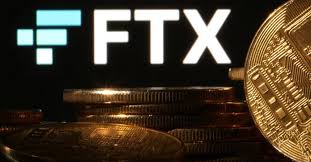Is Your Favorite Crypto Influencer Involved in Shady Deals?
In the fast-moving world of cryptocurrency, trust is everything, and Jaypeg, a popular crypto influencer, seems to have crossed the line. He’s being accused of taking part in a promotional scam involving a memecoin project called “Uptober.” This story highlights some of the risks in the crypto space and shows why it’s crucial for investors like you to stay sharp and informed.
What Happened?
According to the team behind “Uptober,” Jaypeg agreed to promote their memecoin in exchange for 2% of its total supply, which was valued at about $2,200. This type of deal is pretty common in the crypto world—promoters get paid to talk up new coins to boost excitement. But the scandal started when Jaypeg allegedly received the tokens, sold them, and then denied ever getting paid.
Things got even messier when Jaypeg deleted messages in a Telegram group where he had posted the wallet address that received the funds, claiming it was “random” and not his own. The “Uptober” team didn’t buy this excuse, so they brought in ZackXBT, an on-chain detective (someone who investigates blockchain transactions), to look into it.
The Evidence
ZackXBT found that the wallet address where Jaypeg received the funds was the same one that claimed rewards (known as airdrops) from the Solana Saga smartphone earlier in the year. This evidence directly linked the wallet to Jaypeg, making it harder for him to deny his involvement. But instead of admitting guilt, Jaypeg accused the Uptober team of trying to blackmail him. To smooth things over, he supposedly donated $2,000 to a conservation charity as a public apology. But was it really a donation, or just an attempt to clear his name?
Why This Is Important to Know
This story teaches us some valuable lessons, especially if you’re thinking about investing or trading in the crypto world:
- Be Careful of Promoters: Just because someone is popular on social media doesn’t mean they’re trustworthy. Many influencers in the crypto space are paid to promote coins, which could affect their honesty. Always do your own research.
- On-Chain Evidence: Blockchain is transparent, meaning every transaction can be traced. That’s why it’s hard to hide dishonest actions like these. The evidence uncovered by blockchain detectives like ZackXBT can reveal the truth, even if people try to cover their tracks.
- Memecoins and Risks: Memecoins like “Uptober” and others (think of Dogecoin or Shiba Inu) are fun and can sometimes make people a lot of money, but they can also be extremely volatile and full of scams. The rise of memecoins in 2024 shows how quickly these tokens can grow, but the hype can also lead to shady deals like this one.
Key Terms to Remember:
- Memecoin: A cryptocurrency created as a joke or based on a meme, but sometimes traded seriously.
- On-Chain Sleuth: Someone who investigates blockchain transactions to uncover evidence of wrongdoing.
- Airdrops: Free tokens or coins given to users as rewards for holding a certain cryptocurrency.
- Wallet Address: A unique identifier used to receive and send cryptocurrency.
Why Build on This Knowledge?
If you’re serious about getting involved in cryptocurrency, knowing how to spot scams and dishonest practices will save you a lot of trouble—and possibly money. Scandals like this one involving Jaypeg highlight the dark side of the crypto industry, where fast profits sometimes lead to shady actions. But by staying informed, you can protect yourself and make smarter investments. Understanding how blockchain transparency works, how memecoins rise and fall, and how influencers operate in this space will give you a huge advantage in navigating this exciting but risky world



